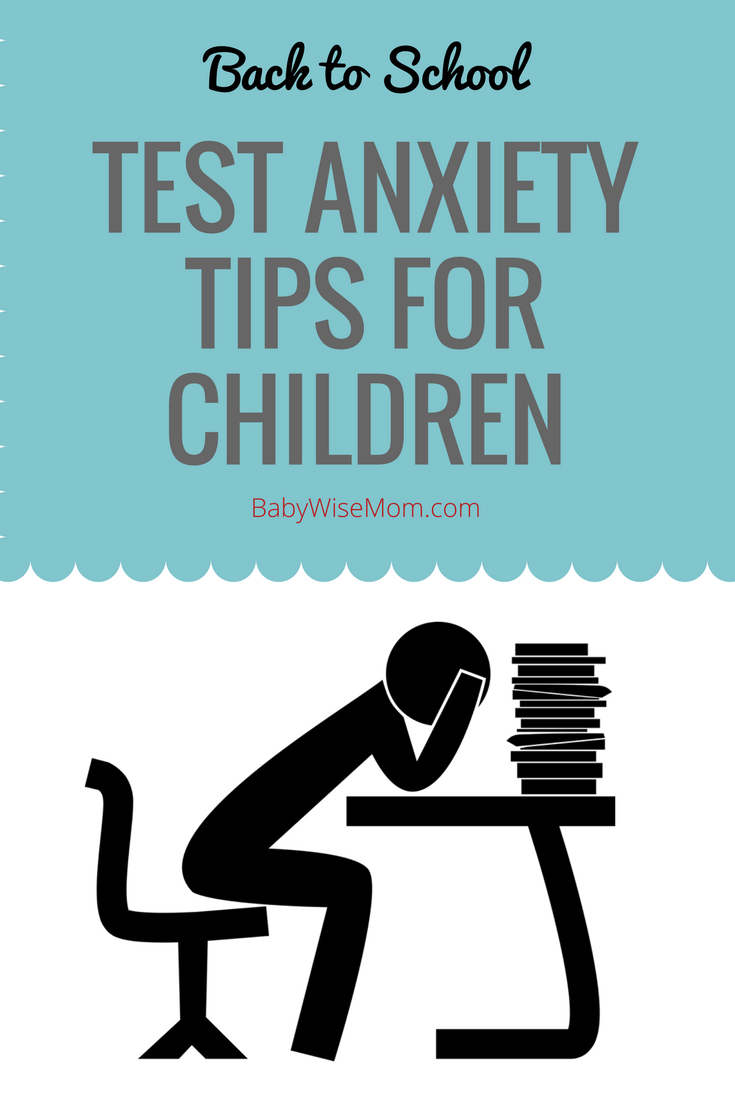The only thing worse than taking a test is being totally stressed out about taking a test. The reality of school these days is that there are a lot of tests, and they start young. Here are some tips to get your child past test anxiety.
Both Brayden and Kaitlyn went through a period of test anxiety when they were in first grade. When McKenna got there, her’s was even more pronounced than her sibling’s had been. Kaitlyn’s test anxiety was initially so bad that she tested as one of the lowest readers in her grade when they tested for placement in the reading program. I knew that was wrong, talked to the teacher, and she was retested and put as the top reader in her grade. Huge disparity there. She then became worried about how she would do on her first spelling test. I was visiting with Brayden’s teacher one day when she gave me several test anxiety tips to help her overcome that anxiety. I am happy to say it worked!
Test Anxiety Tips for Children
Acknowledge Feelings
Do not dismiss your child’s worries. Do not make comments like, “What are you so worried about? It is only a little first grade test. It will get much harder than that!” This is big stuff to your child. Be empathetic and recognize that your child is having real feelings.
Deep Breathing
The first thing we worked on was having Kaitlyn close her eyes and take several slow, deep breaths. We did this at home. I told her if she was feeling nervous at her test, she should close her eyes and do these deep breaths at school.
Visualization
I think the biggest thing that helped Kaitlyn was visualizing something positive. We talked about several things that made her happy. She loved to draw and she loved her stuffed animals. When she closed her eyes, I had her visualize herself doing something she loved to do. She basically went to her “happy place.”
Read: Best Tips for Parenting An Anxious Child
Be Prepared
As her first spelling test approached, we practiced her spelling list over and over again. It is much easier to go into a test with less anxiety when you know you are ready for it.
Practice Tests at Home
I would give Kaitlyn a sheet and tell her, “This is a test.” I would then have her complete it. I reminded her of her coping skills. She learned taking a test isn’t so scary.
Good Sleep and Food
It is very important to have enough sleep and a healthy breakfast on test days. Your brain does not work as well if it is low on sleep or nutrients.
Prepare Child for Getting Questions Incorrect
Other than Kaitlyn’s initial big blunder on the first reading placement test, she had 100% on every test clear until the year was almost over. Her teacher often reminded her, “If you get a question wrong, it will be okay. It is okay to get a question wrong on a test.” By the time Kaitlyn actually missed something on a test, she had heard that it would be okay so many times that she didn’t have any sort of breakdown. She wasn’t bothered; she knew it was normal to miss a question sometimes.
Talk to the Teacher
Let the teacher know if your child is having test anxiety. I told Kaitlyn’s teacher about it, and she would keep an eye on her during tests to make sure she was okay. She would remind Kaitlyn of her deep breaths and visualization. She also had the great idea of getting Kaitlyn mentally prepared for her first mistake. The majority of teachers are teaching because they love to do it. They want your child to succeed. Be a partner with your child’s teacher so you can both help your child be the best version of themselves.
Conclusion
I suppose a “perk” of all of the testing students do these days is that they get so used to taking tests, they soon lose the anxiety. Until then, help your child by utilizing these principles.

